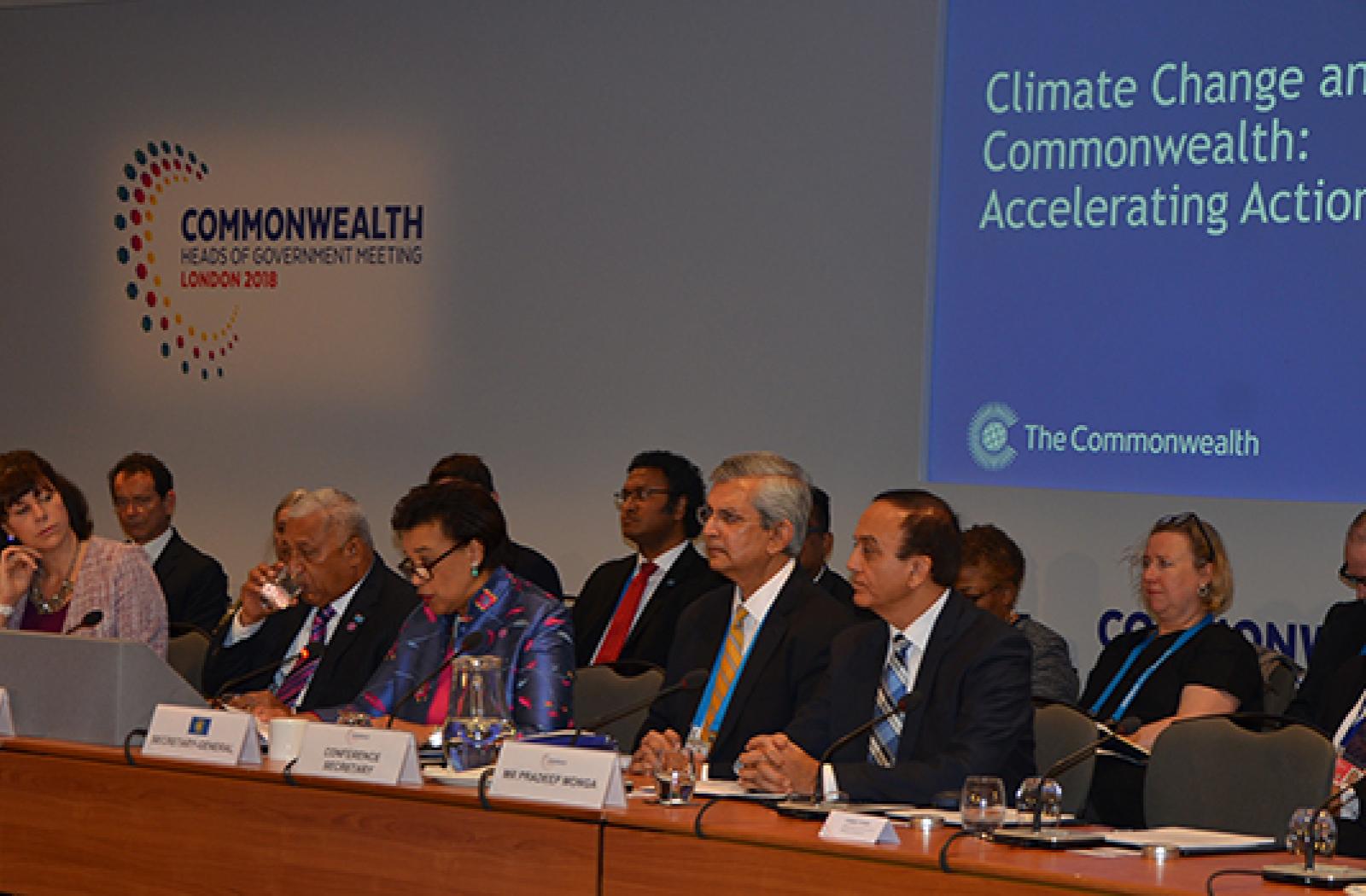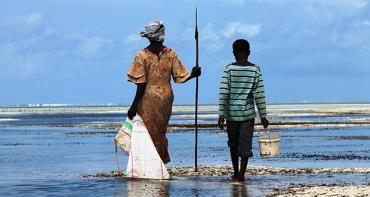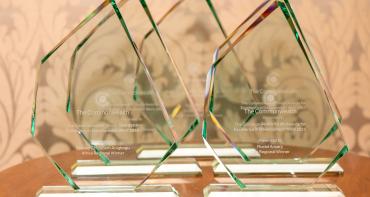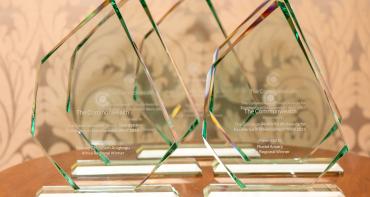Regional and pan-Commonwealth winners receive £14,000 grant between them

A climate change activist from India who works with local communities and governments for environmental change was today awarded the pan-Commonwealth and Asia region Commonwealth Youth Award.
Priti Rajagopalan received a £5,000 grant towards her work at an awards ceremony at the Commonwealth Secretariat’s headquarters in London.
She was joined at the ceremony by the regional winners for Africa and Europe, the Caribbean including Canada and the Pacific, who each won a £3,000 grant: Ghanaian Gilbert Addah; Christaneisha Soleyn from Barbados and New Zealander Ariel Chuang.
Ms Rajagopalan said of her award: “This award inspires me to move forward and to take a lot more people with me, with the same spirit, into the development sphere.”
Commonwealth Deputy Secretary-General Mmasekgoa Masire-Mwamba said: “These young people are to be applauded for their accomplishments to better the lives of their peers, communities, and future generations. They are an inspiration to us all and demonstrate the importance of listening to and learning from young people on development issues. The Commonwealth takes great pride in working with its member states to develop the extraordinary potential of young people and partner with them in shaping our collective futures.”
At 18 Ms Rajagopalan started a waste management programme with some friends, training students across 200 schools and more than 40 universities in separating waste and composting. The compost is then sold cheaply to farmers in India. The Indian government now funds the project in more than 40 cities.
Ms Rajagopalan has also trained women and children in rural India to make and maintain their own solar powered goods, water purifiers and in sterilising equipment for midwives.
An engineer by training, Ms Rajagopalan, now 23, matches her grass roots sustainability projects with policy work for governments and international organisations, and helping researchers and colleges exchange ideas.
She plans to use her Commonwealth grant to start an urban organic farming project to produce food for the local area and to invest in a solar powered farm in India.
Africa region winner Mr Addah, 28, is the founder and Executive Director of Eduvid Education Ghana Limited, a youth-led organisation that conducts research into educational difficulties in Ghana and proposes solutions for them. Eduvid’s flagship programme is an online education support initiative that connects young people between senior high schools, ensuring that all students receive the quality materials and tutoring that will maximise their chances of getting to university.
The programme is due to go nationwide in partnership with the Ghana Education Service, and Mr Addah plans to use the youth award grant towards tablet computers for students.
“Good quality teachers for a country like Ghana is expensive. The best alternative we can adopt now is the potential of the internet,” he said.
“I dedicate this award to all the children who are struggling and deserve a decent education, and to teachers and volunteers.”
At 16, Ms Soleyn from Barbados started a charity called The United Youth Leaders of Barbados. The group works with young people aged 15-25 on their personal development and discusses the issues that are affecting their peers. Ms Soleyn, now 23, is also training to be a clinical psychologist, and she brings her professional training to inspire and develop young people as they partner with local NGOs to drive projects in fields such as HIV/AIDS prevention. She was also a CARICOM youth ambassador and has worked on Barbados’ national youth policy.
Ms Soleyn plans to use her grant to expand the work of The United Youth Leaders of Barbados to the Caribbean region.
“I dedicate this award to young people who have a dream like I have and to everyone who is looking to make good changes in the world,” she said.
New Zealander Ariel Chuang, 26, founded the Amina Foundation, which currently sponsors the “Let Us Learn” Madrassa Nasome Programme in Angoche, Mozambique. The programme organises literacy classes for preschool children who speak their native language at home but will be taught in Portuguese at school. Approximately 500 children are participating in this programme, taught by local high school graduates, and adults are also joining the classes. The Foundation also works with widows in Angoche to teach them sustainable farming techniques.
A physiotherapist and entrepreneur, Ms Chuang is also now training to be a doctor.
She plans to use the prize money to develop the preschool class programme and curriculum and to help people to set up their own businesses.
“It’s been amazing to talk with the other regional winners over the last few days. I dedicate the award to the children in Mozambique, who I can’t wait to see again and I hope to see them here one day receiving awards like this,” she said.
The Commonwealth Youth Awards are run by the Commonwealth Secretariat’s Youth Affairs Division, which manages the Commonwealth Youth Programme (CYP). Earlier this year, CYP launched the first Youth Development Index which measures the development and empowerment of young people in countries worldwide.



